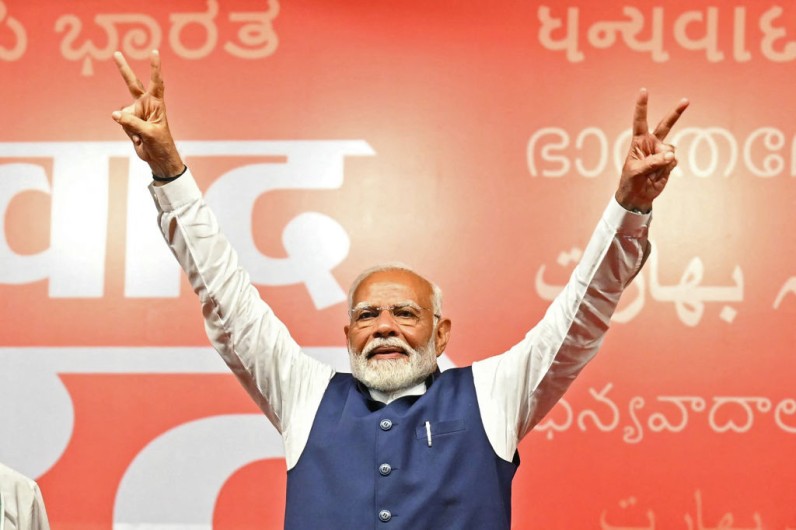
India's ruling Bharatiya Janata Party (BJP) won this year's general elections, but to create a parliamentary majority, it had to form a coalition government with the Telugu Desam and Janata Dalto parties.
This meant that the BJP had to negotiate some economic policies with its junior partners in the near future.
This also meant that Prime Minister Narendra Modi would be sworn into a new term on Saturday (June 8), securing his legacy as one of the country's longest-serving and most influential leaders.
Nikkei reported that the BJP only secured 240 seats, 32 short of the required 272 to form a majority in the country's parliament. With Telugu Desam, Janata Dalto, and other BJP allies securing 52 seats, the coalition, called the National Democratic Alliance, gave the BJP a secure majority of 292 out of 543.
The opposition bloc, the Indian National Developmental Inclusive Alliance, will have 234 seats in the upcoming term, 99 of which belong to the BJP's principal opposition party, the Congress Party.
The other 17 seats have been filled by crossbenchers who professed no allegiance to both blocs.
Reuters added that US President Joe Biden has congratulated Modi for winning another term as prime minister.
BJP's Poorer Performance Not a Setback to India's Economy, Analysts Say
When India's Election Commission revealed the results, the Indian stock market fluctuated because Modi's party won by a narrow margin. This only stabilized when BJP allies announced their intention to join Modi's party in forming a coalition government.
However, since the BJP has to settle for a coalition to continue ruling India, analysts say that Modi's new coalition government has to sustain India's economy, especially if it is to compete with China, another regional economic giant.
One of several policies the new government would have to deal with is land reform due to India's more inaccessible process than China. Land reform policies would particularly affect foreign manufacturers who want to diversify from China due to geopolitical tensions, especially in electronics.
Matthews Asia portfolio manager Peeyush Mittal told CNN that the policymaking of the government of the day would become "more difficult" moving forward.
On the other hand, Capital Economics economist Shilan Shah said that the Modi government still has "enough of a mandate" to enact reforms that would keep India's GDP at 6% to 7% and eventually double its economy.







Join the Conversation